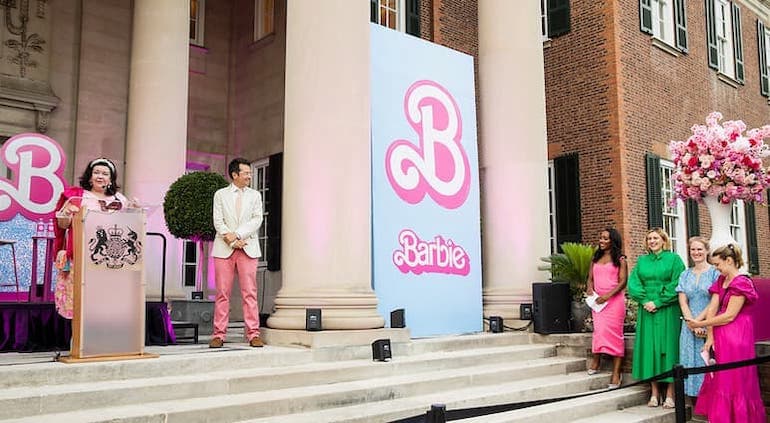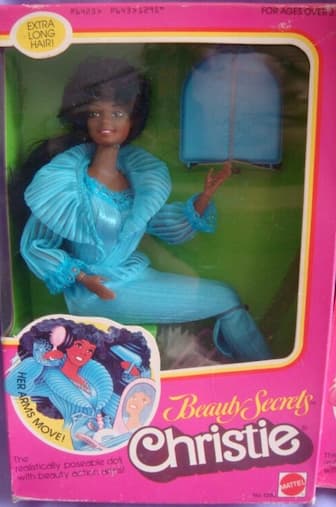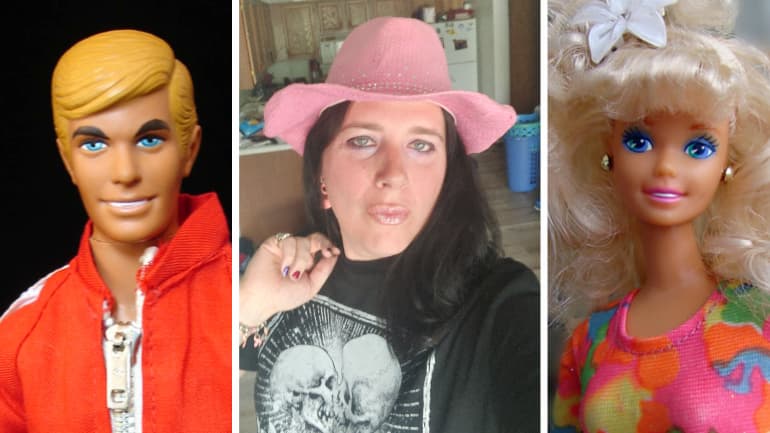“Barbie” is the smartest film of 2023.
It’s brilliant, subversive, and invites us to laugh at the insanity of patriarchal systems, hyper-masculinity, and traditional gender roles.
That’s why, when I first watched “Barbie,” I cried. More specifically, I cried over a speech in the film by Barbie’s fictional mom, Gloria.
“It is literally impossible to be a woman,” says Gloria, played by America Ferrara. “Like, we have to always be extraordinary, but somehow we’re always doing it wrong…. I’m just so tired of watching myself and every single other woman tie herself into knots so that people will like us.”
Society’s expectations for women are contradictory
I learned this almost immediately after I began my transition from male to female, 17 years ago.
One of my friends told me at the time, “There is no wrong way to be a woman.”
But the world immediately pointed out to me all the ways I was doing it wrong.
I couldn’t dress too feminine, because then I was trying too hard. If I didn’t dress feminine enough, clearly I wasn’t a “real” woman. Don’t be too smart; men will feel threatened, and women will call you a bitch.
I was now a mother to my son. But like so many women, I was accused of not being a “team player” when I tried to take time off for his care. I learned that the world is especially callous toward single moms.
Combine all of that with living in a world that largely views trans women as predators, threats, and even monsters. It sucked. It continues to suck.
Barbie as inspiration, glimpse of breaking traditional gender roles
Enter “Barbie.” It really IS the smartest film of 2023.
“Hell, yeah!” or an eye roll was likely your response to that sentence. Either it reinforced your belief in the film’s right to be the commercial juggernaut it is, or “Barbie” is a searing indictment of how bad Hollywood has gotten at making movies.
Some context: As the film points out, Barbie was created in the late 1950s as an escapist toy for girls and helped them see a world beyond the ideal female stereotype of that time: a mother who cared for babies. This was a time when women could not have a line of credit without their husband’s permission.
Through the Barbie doll, girls could envision themselves owning a fancy house and a fast car. They could dream of a life of their own making, filled with adventure and possibility.
The toy was controversial from the start. The patriarchy shouted that motherhood is all that women should want. The feminist point of view said Barbie hurt girls by projecting an unrealistic body image.
The message was two-sided: strong, independent women are a threat to some, and women who want materialist comforts are failures to the cause. Damned if you do, damned if you don’t.

Greta Gerwig (in green) is pictured with officials of the British Embassy earlier this year. Most of the “Barbie” movie was filmed in England. Photo courtesy of UKinUSA, Flickr.
Greta Gerwig brings depth to roles of Barbie and Ken
Director Greta Gerwig embraces this polarizing and complicated legacy of Barbie head-on.
In Gerwig’s Barbieland, everything is perfect. Every Barbie has a place – an astronaut, doctor, lawyer, supreme court justice, and President.
For Stereotypical Barbie (she’s what people visualize when they think of Barbie), played by Margot Robbie, every day is the same perfect routine: wake up, have a perfect breakfast, wear the perfect outfit, spend a perfect day at the beach….
Robbie plays the character… well…perfectly.
But while Barbie can be anything and anyone, Ken (also played perfectly by Ryan Gosling) is only relevant when he has Barbie’s attention, something Ken pines for and is looking to fight for.
All this perfection is ruined when Barbie fears the inevitability of death. Worse, Ken is immediately red-pilled. He discovers the world is full of dude bros, and he thinks patriarchy is awesome. Returning to Barbieland with this knowledge, he turns Barbieland into Kendom.

Christie, a Black friend of Barbie, was the first Black Barbie doll, released by Mattel in 1990. Photo courtesy nicolenicole, Flickr.
Gender roles behind 1950s Barbie still affect laws, policies today
For me, the very idea of Barbie conjures complicated emotions and memories.
I was never allowed to play with Barbie when I was a young boy. At that time, boys were taught – even more than they are now – that anything girly or feminine is bad. Boys who showed any interest in anything slightly “girly” were ridiculed, ostracized or beaten up.
Video games offered an escape. They provided a loophole through these gender roles, whether it was kicking ass with Chun Li or living vicariously through my sims in the Sims 2 (which, now that I think about it, is kind of like virtual Barbie).
The stereotyping gender roles of my childhood are returning today, in the form of book bans and anti-LGBTQ laws. I am convinced that behind many of these bad policies is a drive to protest some imagined standard of masculinity, and to punish those that fail to reach that standard.
It’s as though masculinity is a trait so fragile, so rare, like a unicorn, that it must be protected at all costs. In a lot of circles, if men aren’t tanning their testicles with Tucker Carlson, or being an alpha Chad with Ron DeSantis, or burning Barbies with Ben Shapiro, they’re told they are “doing it wrong.”
Just like women. Just like transgender people.

Hari Nef, who was part of the cast of Transparent in 2016, attends the Emmy Awards that year. Photo courtesy Walt Disney Television Flickr.
Damage of patriarchy revealed through sophisticated, emotional writing in “Barbie”
Thankfully (spoiler alert in case you haven’t already run into one), Ken discovers patriarchy is a trap that ruins worlds. It makes all the other Kens shun their identities and destroy each other by fighting over it.
In the end, we also learn that Ken wanted the patriarchy because he wanted to ride horses, which as I remember, once upon a time it was little girls that wanted horses.
Gerwig’s Barbie can be trans, also: Hari Nef, a trans woman, plays Dr. Barbie and is welcomed and loved as a full citizen of Barbieland.
You have to applaud the writers, directors, and actors of this film. This could have had a “cut, copy, and paste” plot where Barbie and Ken needed to save Barbieland with some magical McGuffin and discovered the power of love along the way. It still would have made money.
But they didn’t. They chose to trust the audience with the more sophisticated story they told.
It’s also worth remembering that no chatbot or AI could have delivered a story so emotionally impactful. “Barbie” is a timely reminder to Hollywood to cherish their writers and actors and pay them every penny they are worth. #solidarity
I could discuss so much more in this review. Like the Barbenheimer craze: is it worth taking in both features, and in what order? I saw Barbie first, and that’s what I recommend. But if you see ‘Oppenheimer’ first, it does give Fear of Impending Death Barbie more reason for the existential dread.
For now, I recommend seeing “Barbie” on the big screen to bask in this incredibly fun AND nuanced film. Go out to see it with friends, whether in pink — or like I did, in black eyeliner and leather. Because Barbie can be goth, too!
Then ask yourself, if a world filled with dolls who have no genitals can realize the absurdity of traditional gender roles, why can’t we?
Cover photo features (l to r) Malibu Ken doll photo by Dolly Haul of Flickr; Aime Wichtendahl self-photo in her Barbenheimer movie viewing attire; and Ski Fun Barbie Doll from ViVeDoll_miniknitter, Flickr.






